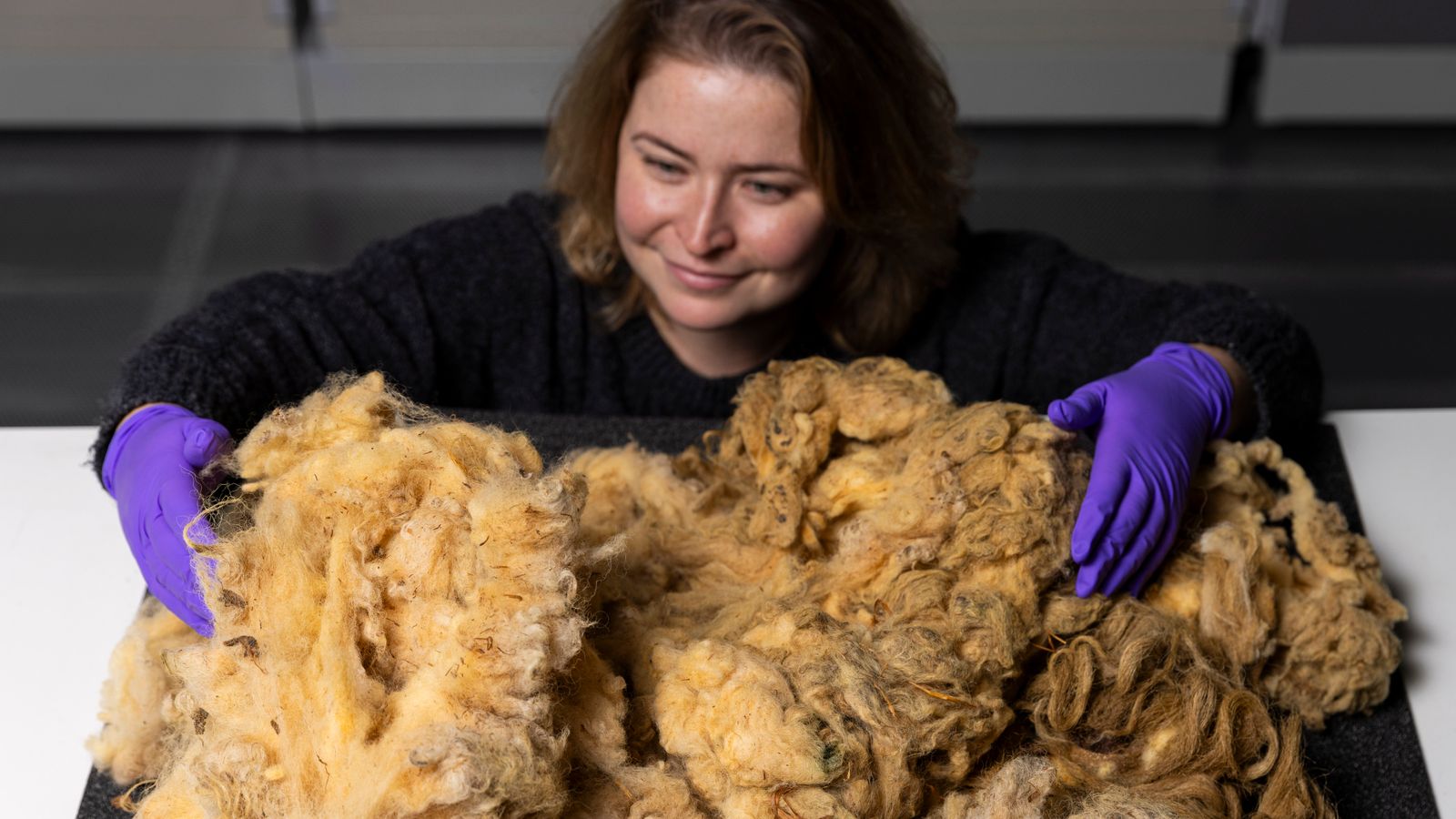A fleece from Dolly, the world’s first cloned sheep, will go on display at National Museums Scotland.
The museum in Edinburgh already has her preserved body, death mask and fellow cloned sheep Morag and Megan on display.
Now the fleece has been donated by Dr William A Ritchie, an embryologist on the team that created Dolly.
Dolly the sheep was born in 1996 at the Roslin Institute just outside Edinburgh, where she spent her entire life, gave birth to six healthy lambs and died in 2003 aged six.
Her coat of wool has been donated along with laboratory equipment, including sharpened glass pipettes, a microscope and an electrical fusion machine.
The tools were crucial to the success of the Roslin Institute’s groundbreaking cloning procedure.
Dolly’s preserved body has been on display at the museum for nearly 20 years and remains one of its most popular exhibits.
Sophie Goggins, the museum’s senior curator of biomedical science, said: “Dolly the sheep represents one of the most important scientific advances of the 20th century.
“Her fleece will now be available to researchers, ensuring Dolly’s remarkable contribution to science continues for generations to come.”
Read more from Sky News:
Scientist who led team that cloned Dolly the sheep dies
Strong winds and power cuts could threaten Christmas travel plans
Dr Ritchie said: “When Dolly the sheep was introduced to the world the scientific community went wild.
“The impossible had been achieved, and to make the story even more remarkable, some of the equipment used to produce this breakthrough was handmade in the Roslin institute’s workshop just outside Edinburgh.
“It is only fitting that the equipment and the fleece are reunited with Dolly in Scotland’s national collections to add to the story of this extraordinary scientific achievement.”
Dolly’s fleece and the lab equipment were recently featured on the Antiques Roadshow and were valued at between £20,000 and £30,000.
The items are expected to feature again on an Antiques Roadshow Christmas special being shown on Sunday.






